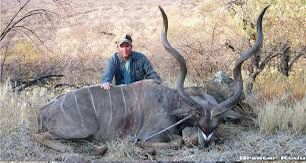ABOUT 30 men and women involved in different levels of the local fishing industry completed an Ecosystem Approach to Fisheries Management course in Walvis Bay last week.
The two-day course was sponsored by the World Wildlife Fund (WWF) and equipped fishers, compliance staff, fisheries observers and managers with the skills and knowledge to implement an ecosystem approach. According to Heidi Potgieter of WWF, the benefits of the training programme will ultimately result in fisheries acting more responsibly through improved compliance to fisheries regulations and implementation of voluntary measures, thereby increasing the likelihood of long-term sustainability and access to global markets.”Many fishers have little tertiary education.A training programme such as this one would uplift the skills of fishers and in this way aid in poverty alleviation,” she stated.The course, which was held at Namfi in Walvis Bay last week, included an introduction to responsible fishing practices, the well-being of the ecology through appropriate legislation, fisheries management and monitoring and enforcement.”This was the first course of its kind in Namibia, and it was a great success,” WWF’s Samantha Petersen told The Namibian.”We hope that this has paved the way for many more to come.”The ecosystem approach to fisheries management seeks to protect and enhance the health of the marine ecosystem, on which human benefits depend.According to Potgieter, for responsible fisheries management it is important to understand the dynamics of individual populations and the ecosystem as a whole.It is equally important to have appropriate policies and regulations in place that incorporate all aspects of an ecosystem approach.”However, the fact that this is a necessary but not a sufficient condition is apparent.If the people on the ground like the fishers themselves, fisheries observers or compliance officers do not understand how and why regulations or management measures are in place there will be little or no implementation,” she said.”Therefore it is vital that these people are empowered to understand the environment within which they work, the concepts that underpin fisheries management and the thought process behind management decisionsAccording to Heidi Potgieter of WWF, the benefits of the training programme will ultimately result in fisheries acting more responsibly through improved compliance to fisheries regulations and implementation of voluntary measures, thereby increasing the likelihood of long-term sustainability and access to global markets.”Many fishers have little tertiary education.A training programme such as this one would uplift the skills of fishers and in this way aid in poverty alleviation,” she stated.The course, which was held at Namfi in Walvis Bay last week, included an introduction to responsible fishing practices, the well-being of the ecology through appropriate legislation, fisheries management and monitoring and enforcement.”This was the first course of its kind in Namibia, and it was a great success,” WWF’s Samantha Petersen told The Namibian.”We hope that this has paved the way for many more to come.”The ecosystem approach to fisheries management seeks to protect and enhance the health of the marine ecosystem, on which human benefits depend.According to Potgieter, for responsible fisheries management it is important to understand the dynamics of individual populations and the ecosystem as a whole.It is equally important to have appropriate policies and regulations in place that incorporate all aspects of an ecosystem approach.”However, the fact that this is a necessary but not a sufficient condition is apparent.If the people on the ground like the fishers themselves, fisheries observers or compliance officers do not understand how and why regulations or management measures are in place there will be little or no implementation,” she said.”Therefore it is vital that these people are empowered to understand the environment within which they work, the concepts that underpin fisheries management and the thought process behind management decisions
Stay informed with The Namibian – your source for credible journalism. Get in-depth reporting and opinions for
only N$85 a month. Invest in journalism, invest in democracy –
Subscribe Now!






